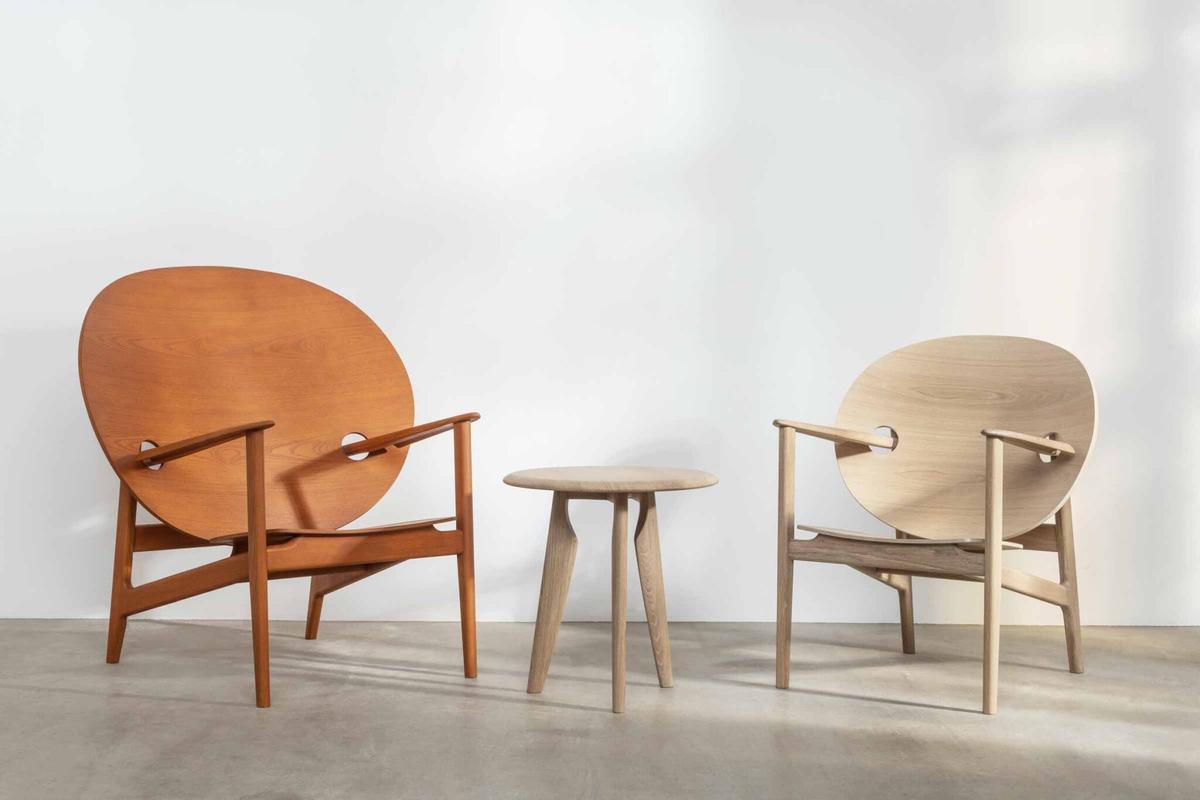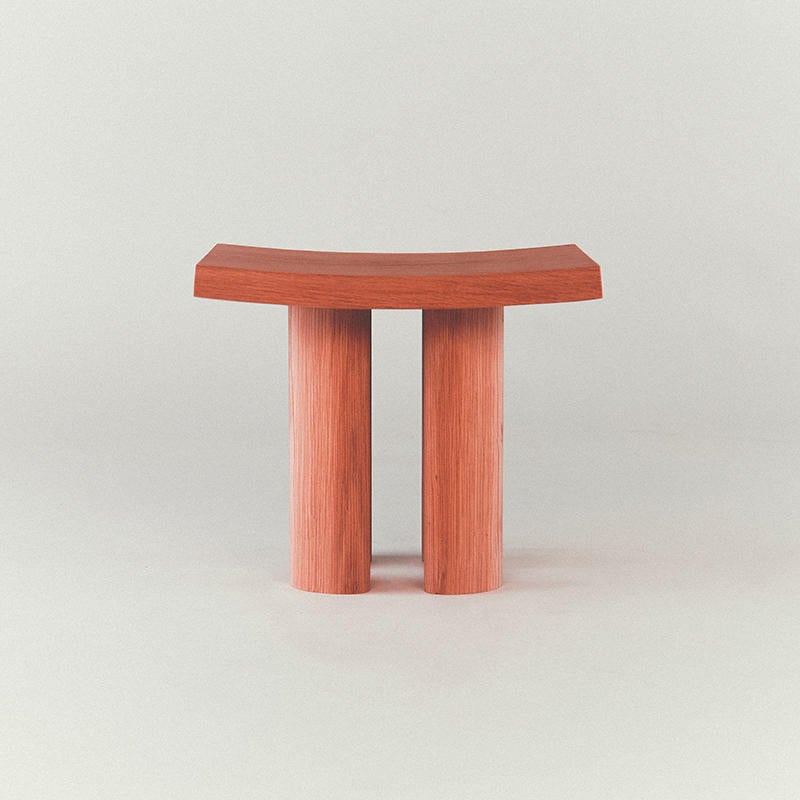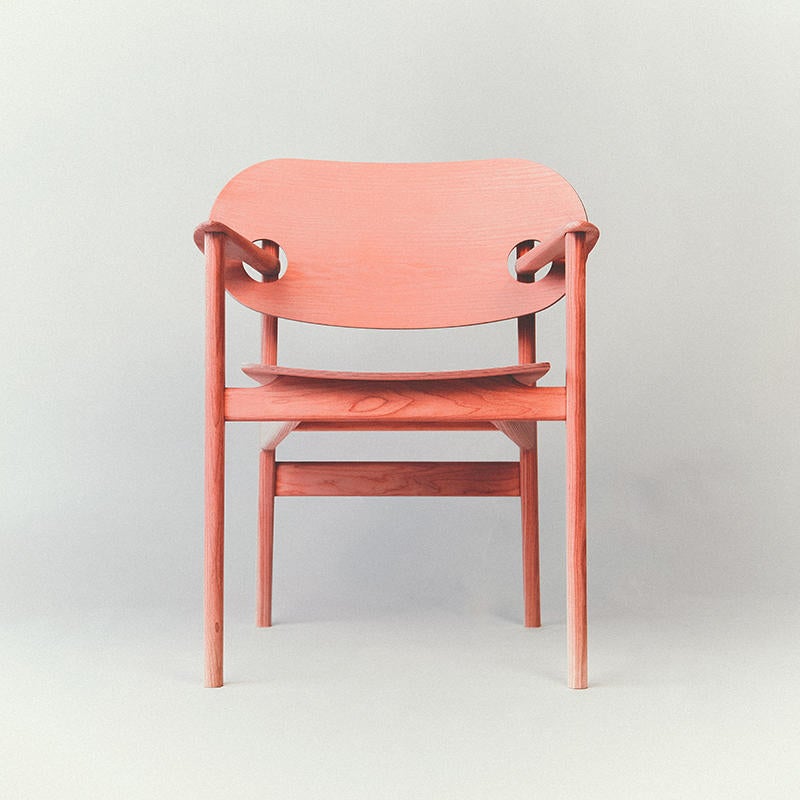Accidents happen. No one knows that better than England–based furniture designer Mac Collins, who happily stumbled into the exact right career. Like many creatives, he didn’t grow up thinking that being an artist or a designer counted as a real job. Now, he’s edging into the furniture industry a little differently than the rest.
Collins grew up in Nottingham, and never really saw himself ending up in design. But in high school (or college, as the British call it), an influential teacher encouraged him to do an art foundation—essentially an interim year before his undergraduate education to explore art and design. The foundation built up Collins’s portfolio, and once he arrived at Northumbria University in Newcastle upon Tyne, a combination of his interest in sculpture and another supportive teacher led him to furniture design. “I had another great tutor there [who] pretty much said, ‘Design isn’t just Dyson and Jony Ive and people that create products—there are other areas of design that can be expressive.’”

Collins enrolled in a 3D design course and found himself learning by making models and prototypes rather than the CAD renderings that had dominated so much of his exposure to design. By the time he graduated in 2018, he had already picked up three awards and plenty of buzz for Iklwa, his signature chair design. Still, it hasn’t been an entirely smooth entry into the furniture world, and the designer has had to navigate the balance between media attention and commercial success. “The funny thing with this industry is that it takes a while for sales to get going,” he says. “A lot of the projects you do, particularly in the first two years, is just to build press.”
For all the hubbub, under Collins’s even-keeled disposition is a rich imaginative landscape—one that plays an essential part in his creative process. “In terms of drawing inspiration, a lot of the things I make are [based on] narrative story leads,” he says. “Certain things, like music and other artwork, come together in my head and create a scene for this story and the kind of characters that might exist within the scene. Then I end up imagining furniture pieces falling within it. When I close my eyes or look around, I feel like I can really see these things within this environment that I’m imagining.”
Another tenet of his work is his dual heritage: With European and Caribbean roots, much of his work explores the African diaspora by way of furniture design, introducing African and Caribbean elements into the European and Scandinavian design vernacular. His Iklwa lounge chair is one such case: A simple, sultry, smooth wood finish nods to the Scandinavian tradition, but a playful scale combined with armrests that acrobatically pass through the backrest of the chair hint at a proudly African spirit. The intensity of the chair is meant to frame, enhance and empower its sitter, and across Collins’s portfolio, his pieces share the powerful hum of African design.


Each of Collins’s creations is hand-hewn, using minimal (if any) CNC cutting, and so far, not a piece of hardware in sight. Instead, the designer has opted to fabricate his designs entirely in wood, using traditional joinery techniques. Ethical sourcing is also top of mind: To maintain his high standards, Collins works with the American Hardwood Export Council to learn about how wood can be sustainably farmed and exported. “Ultimately, timber appeals to me in the sense that it’s a really beautiful material that can do a lot,” he says. “I like the idea that this thing actually just grew out of the earth, and now it’s a massive thing that can support the weight of however many people. But it also can be a sustainable choice. Look at it as a carbon deposit: You’re trapping carbon within this material for maybe 200 years, if it’s a thing that’s looked after.”
Collins’s pieces are available through Benchmark, a workshop-showroom based in Berkshire and Dorset that prioritizes conscious craft and sustainable design. Through their partnership, Collins is able to reach designers with his product while also devoting time to developing new projects. (Benchmark’s products can be ordered through Brooklyn, New York–based Anthom Design House for stateside shoppers.) Central to both the workshop’s and the designer’s ethos is a thoughtfulness around the environment and countering the impact of the fast furniture industry.
That mindfulness was cultivated in Collins from the start of his craft—and remains a core value of his practice. “I choose to do [this] in a way that's as sustainable as possible,” he says. “I’m not perfect, and neither are a lot of people—but I don’t think you can design and not think about it. It’s too late to be doing anything in any industry and not thinking about your impact on the future. We can’t guarantee the longevity of the world that we live in.”
To learn more about Mac Collins, visit his website or find him on Instagram.
Homepage image: Mac Collins | Courtesy of the designer





























